The Great War 1914-1918
The First World War started five days after Dr Bastard set off to Australia as ship's surgeon on the emigrant ship Otway on 31 July 1914. He was to return with his bride-to-be four months later and was appointed the Doctor for Bow in 1920. At the outbreak of War, Dr Arthur King was the village doctor.
The village responded to war being declared by making plans for the school building to be converted to a hospital. First aid training was given by the Red Cross. The villagers also offered to accommodate, for free, a Belgian refugee family for a year. Funds were raised to support the troops, school children were encouraged to supply eggs for convalescent soldiers, and work parties made sandbags for use on the front. Otherwise, life seemed to carry on much as before: the hunt continued to meet, and prices at Bow's monthly cattle market by the station were good.
The names of twelve servicemen from Bow who gave their lives during the First World War are inscribed on the memorial in the churchyard. The stories of the Phillips and the Holmes families are told here.
Lieutenant Fenton Ellis Stanley Phillips MC 1895 -1916
Fenton Phillips was the elder son of Rev Edward Stanley Phillips, who was Rector of Bow between 1912 and 1929. Fenton was born in 1895 at Pembroke House School, Hampton-on-Thames, where he received his early education at the hands of his great-uncle, Mr. J. Fenton Ellis.
In September, 1912, when his family moved to Devon, he went to Newton College in Newton Abbot, where he remained until the winter of 1813.
He then joined the staff of "The Dene" Preparatory School, Caterham, as assistant-master, intending to read for Cambridge, in modern languages and history.
At the outbreak of the war, he was one of the first in Bow to sign up; he joined the Artists' Rifles in September 1914, and was sent to France in May 1915 as a lieutenant. In May 1916 he joined No 3 Squadron of the Royal Flying Corps as an observer. In September that year, shortly after his 21st birthday, he was awarded the Military Cross for "conspicuous bravery and skill":
"He has done fine contact patrol work. On one occasion he came down to a low altitude while making a report, and his machine was much damaged by rifle and machine-gun fire, but he carried on and successfully put our artillery on to the enemy, who were massing for counter-attack."
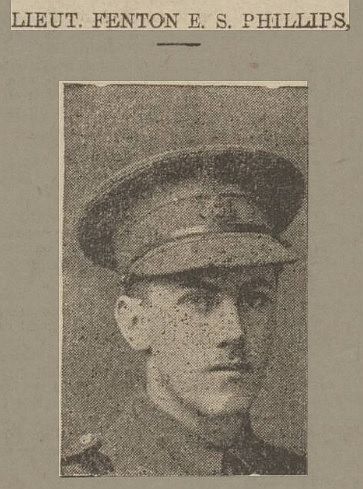
On 27th September 1916 the "Exeter and Plymouth Gazette" featured his award of the Military Cross. "Fenton was an accomplished musician, and his masterly performances on the organ, violin, and piano will be recalled by many in London and Devonshire. When enjoying brief rests abroad he employs his time organising concerts for his soldier friends, and has written and composed many songs, lyrical and comic, with which he regales his audiences. The following little song, composed by him in August last year, seems especially appropriate to recent events, and shows that, at that time, his thoughts and heart were with his brothers in the Air Service:"
THE SONG OF THE AEROPLANE.
This is the Song of the Aeroplane
As it mounts to the clouds on high,
While her engine roars,
Up above she soars,
A speck in the clear blue sky.
The breeze which rushes beneath her planes
Gives life to her slender frame;
And she sings 'Ho! Ho!'
Through the winds that blow–
The Song of the Aeroplane!
I watch the clumsy Zeppelins come
Like silver clouds the sky,
Their sides aglint
With a steely tint
From the sun which rides on high.
Then up and up, like a bird of prey,
I long to commence my game;
And I sing 'Ho! Ho!'
As a bomb I throw –
And the ' Zep' is sheet of flame.
With wings white in the setting sun
I glide to the restful earth,
And I still remain
A victorious plane
Enclosed in my wooden berth.
Admired by all with my ceaseless drone,
As queen of the skies I reign;
And I'll sing 'Ho! Ho!'
Though the winds may blow–
The Song of the Aeroplane.
Second-Lieut. FENTON PHILLIPS.
Devon Regiment, France, August, 1915.
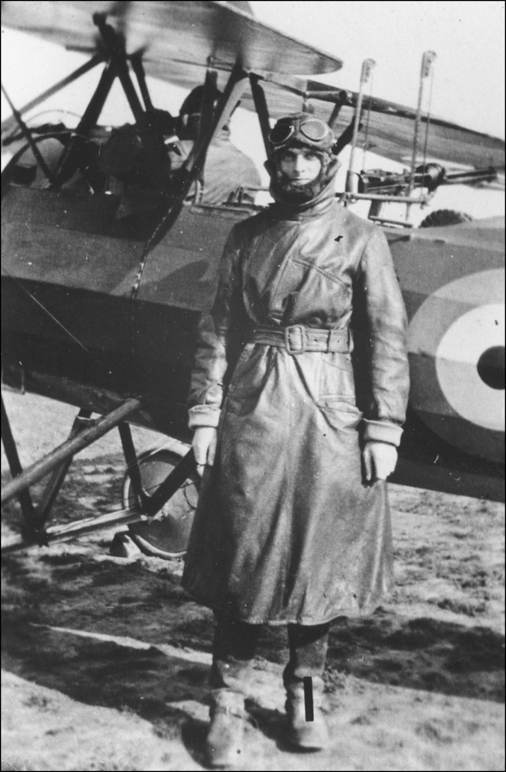
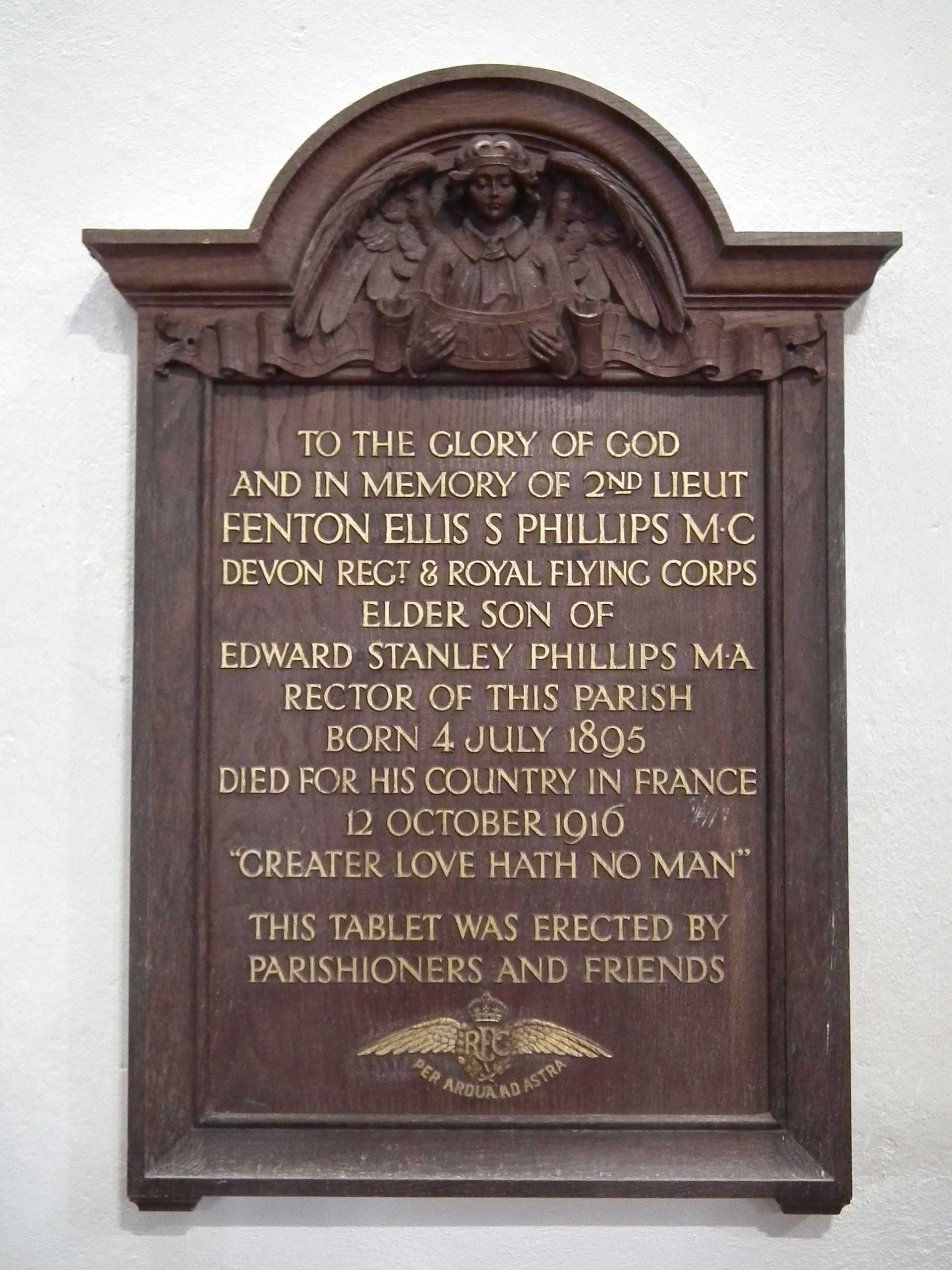
Tablet to the memory of Fenton Phillips in Bow Church
On 27 October, the "Exeter and Plymouth Gazette" published another poem, this one written by Fenton Phillips's father:
IN MEMORIAM.
Lieuts Fenton Phillips (observer) and Leonard Kidd (pilot), R.F.C, both having received the Military Cross, were killed in action October 12th, 1916.
"Per Ardua ad Astra." (Motto of R.F.C.)
Not dead—but sleeping.
Your fragile craft hurled headlong to the earth.
'Twas but the travail of the Soul's New Birth.
Safe —in God's keeping.
“Not lost—but gone before."
Brave pioneers in Freedom's noble strife.
Winging your way into the Larger Life,
From shore —to Shore.
Not far —but very near.
“Nearer than breathing, closer than hands and feet,"
Prayer linked with prayer, heart-beat attuned to beat
Surpassing dear.
Through Cross—to Crown.
No mournful dirge attend your upward climb,
But Trumpet Blast and Triumph Song sublime,
Earth's sorrows drown.
Not taken —but given.
So the whole world must make great sacrifice,
And, purged with the Fire, shall Phoenix-like arise
From Hell—to Heaven.
E. STANLEY PHILLIPS. Bow Rectory, Devon
Update - October 2017
Painstaking research by Canadian Steve St Amant has recently shown that 2nd Lieutenant Phillips's body almost certainly lies in an anonymous grave in the Caterpillar Valley Cemetery near Longueval, France. The gravestone is marked "A British Airman (Observer) of the Great War" and is next to that of an un-named pilot. Piecing together the evidence, which included the fact that both airmen had been awarded the Military Cross, strongly suggested that these two graves belong to Fenton Phillips and Lieut Cameron Kidd. This suggestion is awaiting official confirmation by the Commonwealth War Graves Commission.
The Commonwealth War Graves Commission later accepted Steve St Amant's submission that the two un-named graves belong to Fenton Phillips and Cameron Kidd. A rededication ceremony took place at the Caterpillar Valley Cemetery on 12 October 2017, 101 years after their deaths link. Below is a newspaper announcement on the first anniversary of Fenton Phillips's death.
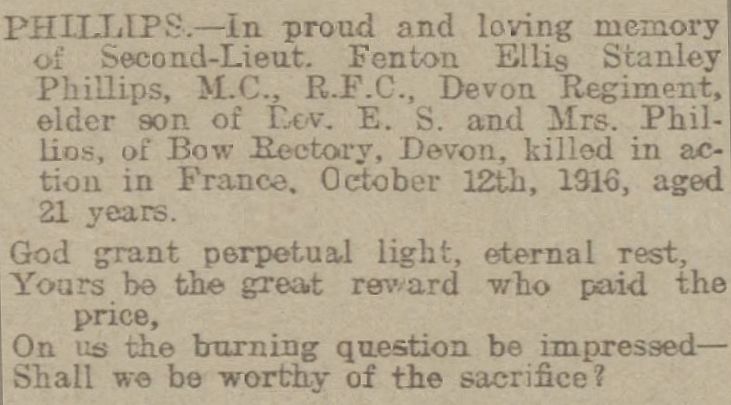
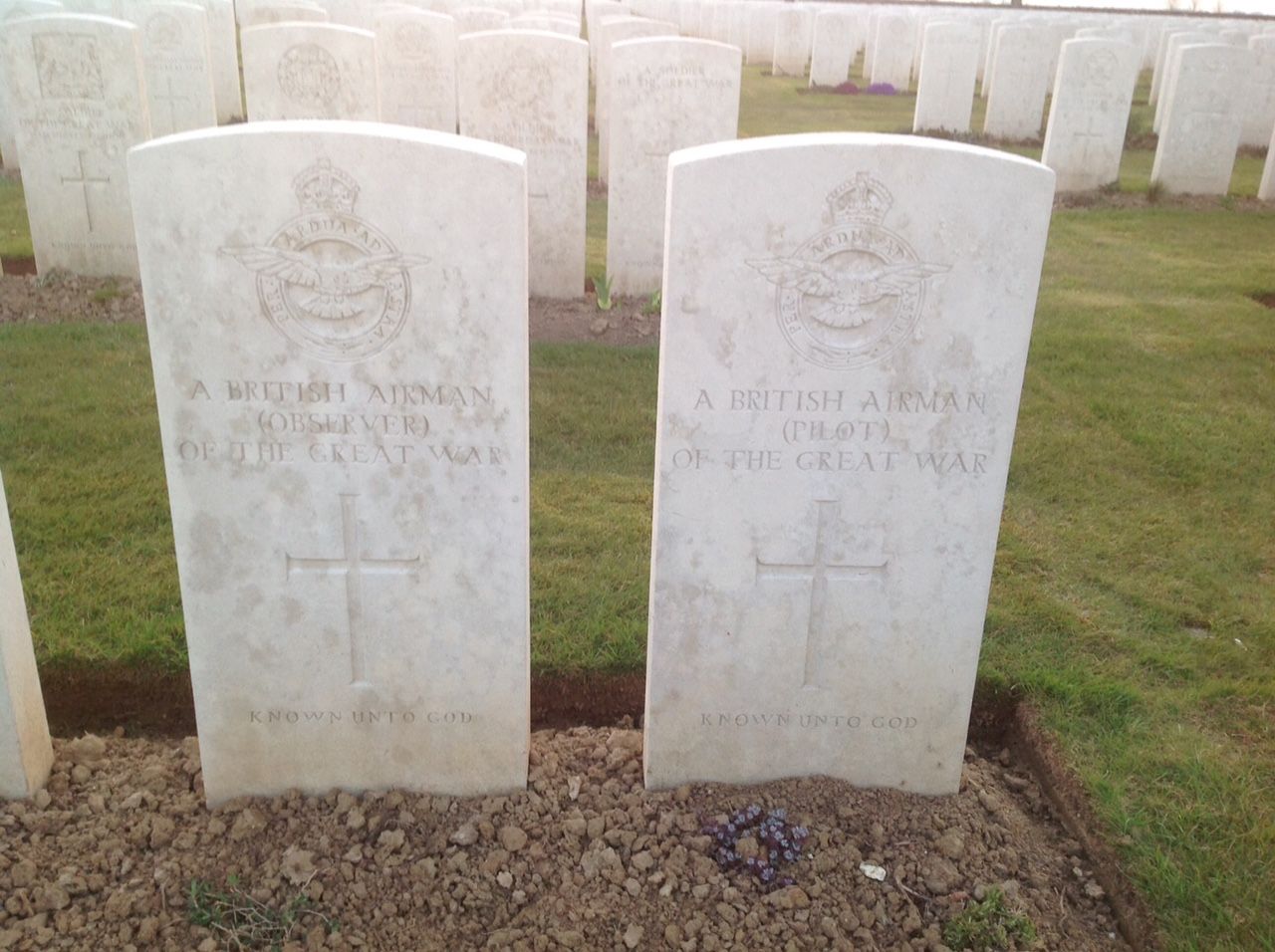
The original gravestones in Caterpillar Valley Cemetery. They have now been replaced, engraved with both airmen's names
